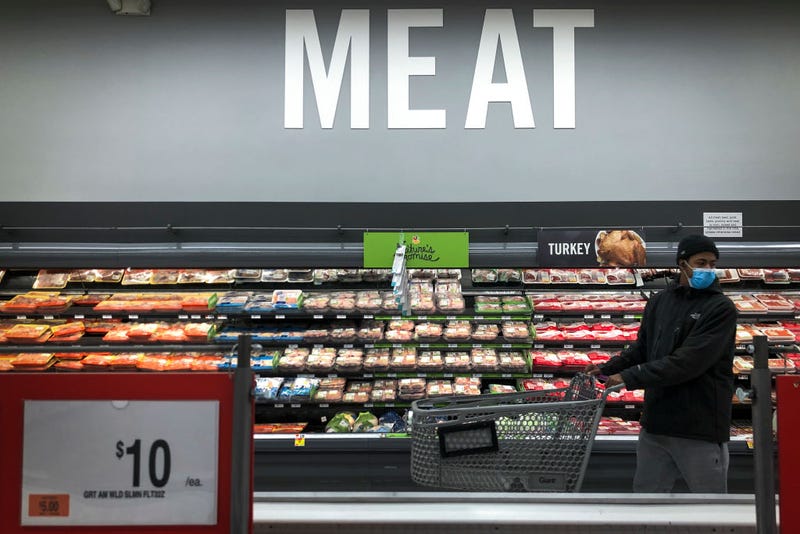
Inflation has driven the cost of food through the roof as Americans are shelling out more at the grocery store than ever before. Still, shoppers are gravitating toward some products over others, and chicken remains a crowd pleaser.
Several weeks ago, Tyson CEO told the Wall Street Journal that fixing the supply chain is his top priority and the company has been so strapped at times that it has had to purchase chicken from competitors.
During an earnings call on Monday, Tyson Foods CEO Donnie King shared with analysts that chicken has risen in popularity as consumers shy away from spending more pricey beef cuts, Reuters reported. And that is actually costing the company.
In a nutshell, the company said it raised chicken prices by more than 20% last fiscal quarter and made the same amount of money that it did a year earlier. 'Inflationary pressures, in the form of demand for higher wages, increased fuel expenses and the price of feed ingredients, cost the company $145 million more this quarter than they did a year ago,' News Nation Now reported.
At the same time, 'consumer demand for protein remains relatively steady.'
With grocery prices alone outpacing the Consumer Price Index, increasing by 12.2% in June compared to last year, people have begun to look for other options while shopping.
Tyson reported on the call Monday that throughout its last three-month period ending June 30 it has seen "strength" in its chicken segment and with meats like breakfast sausages and bacon.
The demand for chicken could also be seen while looking at the company's sales gains, as it says they "were largely driven by higher average sales price in chicken and prepared foods."
"We delivered substantially improved earnings in our chicken segment as well as higher earnings in prepared foods, which partially offset a decline in beef and pork earnings," King told analysts.
Now beef prices are dipping as buying habits shift, and the company faces a "softer consumer demand for premium cuts of beef." As a result, prices for beef were down 1.2% last quarter, Reuters reported.
King shared that the company can "meet customer and consumer needs across a broad range of products and price points even as consumers shift between proteins and products."
Overall the company reported that sales volumes fell 1.9% last quarter, despite bringing in more revenue than predicted. While speaking with reporters, King shared that the company has "a lot of work to do to grow our business."


